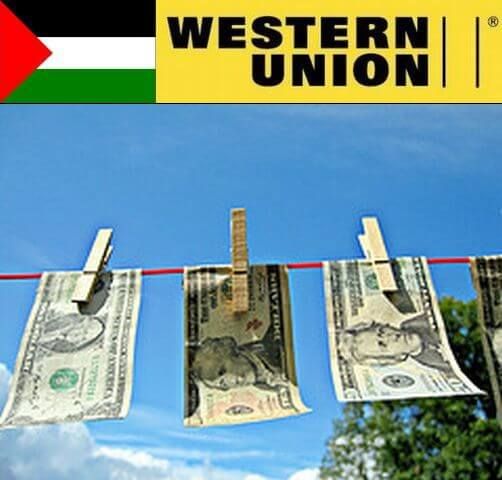 Everything you need to know about today’s media coverage of Israel and the Mideast.
Everything you need to know about today’s media coverage of Israel and the Mideast.
A Syrian defector says government agents fire on protesters from phony ambulances, one of Israel’s most prominent journalists enters politics, and Western Union suspends business in Gaza over money laundering fears.
See HonestReporting’s Media Cheat Sheet every day by visiting Backspin. You can also now have it delivered to your Facebook feed by joining Media Cheat Sheet – Israel in the News.
Israel and the Palestinians
• Jackson Diehl (Washington Post) critiques Obama’s handling of foreign policy, saying the White House’s failure with the Mideast peace process is the “easiest to document.” It’s usually easiest to blame Israel.
Veterans of the Middle East “peace process” shook their heads in wonderment as what at first appeared to be a rookie error evolved into a two-year standoff between Obama and Israeli Prime Minister Benjamin Netanyahu. There was only one possible explanation for this persistence in futility: The president himself was fixed on it.
• It’s a little sad to see that Palestinian Sesame Street took the hit for the PLO’s unilateral statehood bid, but Ramallah knew the risks. I don’t see this Times of London headline’s going to go over well with kids — or US taxpayers.

Arab Spring Winter
• Did Egypt’s Muslim Brotherhood blink, or are they playing their cards deftly? Essam el-Erian, a senior figure in the Brotherhood says the party now backs the military junta’s timing for a handover of power. He also told the NY Times this about the Camp David agreement.
The Brotherhood, he said, would honor the Camp David accord. “This is a commitment of the state, not a group or a party, and this we respect,” he said.
But that comes on the heels of earlier comments where Erian said:
In an interview over the weekend with the London-based Al-Hayat newspaper, the deputy head of the Muslim Brotherhood’s Freedom and Justice Party, Essam Arian, said, “We never promised that we would honor the peace treaty with Israel. The treaty is not sacred and we can and should make changes in it.”
• The Arab League doctrine: If at first you don’t succeed, send more monitors. The LA Times describes the disgraceful situation:
The Arab League is pressing ahead with a heavily criticized observer mission in Syria, saying Sunday it will increase the number of monitors and calling on all sides to halt months of bloodshed . . .
Members of the Syrian National Council, the most prominent opposition bloc, and other activists have urged the league to concede that it can’t protect civilians and to ask the U.N. Security Council to step in. The Arab Parliament, a league advisory body, has also declared the mission a failure and called for the immediate withdrawal of the observers.
• A Syrian defense official who defected talked to CNN about the atrocities he saw.
“What is more horrific is the intelligence vans marked with the Syrian Red Crescent insignia that would drive through the protests as ambulances and start firing at protesters,” he added.
• The Syrian Baath Party peace plan: Appease revolting Sunni nationalists with a conference on multi-party pluralism organized by the ruling secular and (ostensibly) pan-Arab Baath party. For good measure, the gathering will be personally supervised by the hated Bashar Assad himself.
The Daily Star says the conference is due to take place next month — assuming Assad’s still in power and anyone gives the idea more credibility than it deserves.
Rest O’ the Roundup
• AP picks up on news anchor Yair Lapid’s decision to quit journalism and enter politics
Critics have accused Lapid of using his TV anchor desk as a pulpit to promote an agenda. His show recently broke the story of an 8-year-old schoolgirl who was spat on and cursed by ultra-Orthodox extremists. The story sparked an angry outcry against religious extremists . . .
The mere mention of his candidacy has moved lawmakers to begin drafting a bill requiring journalists to go through a six-month “cooling off” period before they enter politics. The bill is known informally as “the Lapid law.”
Meanwhile, YNet lists a bunch of other Israeli journos-turned-politicians, saying the phenomenon “has been common practice in recent years.”
• Maan News: The Palestinian Monetary Authority confirmed that Western Union stopped service to many of its currency exchange shops in Gaza because of money laundering concerns.
While the currency centers were able to use Money Gram and Money Express, the PMA was working to resolve the Western Union shutdown as soon as possible, he added.

• Bulgarian security foils terror attack targeting Israeli tourists. Details are sketchy, but AFP indicates a likely Hezbollah connection:
The television station’s military commentator said the foiled attack could have been linked to the fourth anniversary of slain Lebanese Hezbollah commander Imad Mughniyeh who was killed in a 2008 car bombing in Syria.
• YNet says Israeli hackers obtained personal info and credit card details of thousands of Saudis — and are threatening to release it all if attacks on Israel continue. Also worth reading: Big Hack Attack On Israel Inevitable, Say Experts.
• Time mulls Why New Sanctions Raise Danger of Iran Building Nuclear Weapons
• The Toronto Star‘s Linda Gradstein meets Christian pilgrims touring Israel’s new Gospel Trail in the Galilee.
(Image of money via Flickr/Images_ of_Money)
For more, see yesterday’s Cheat Sheet.

